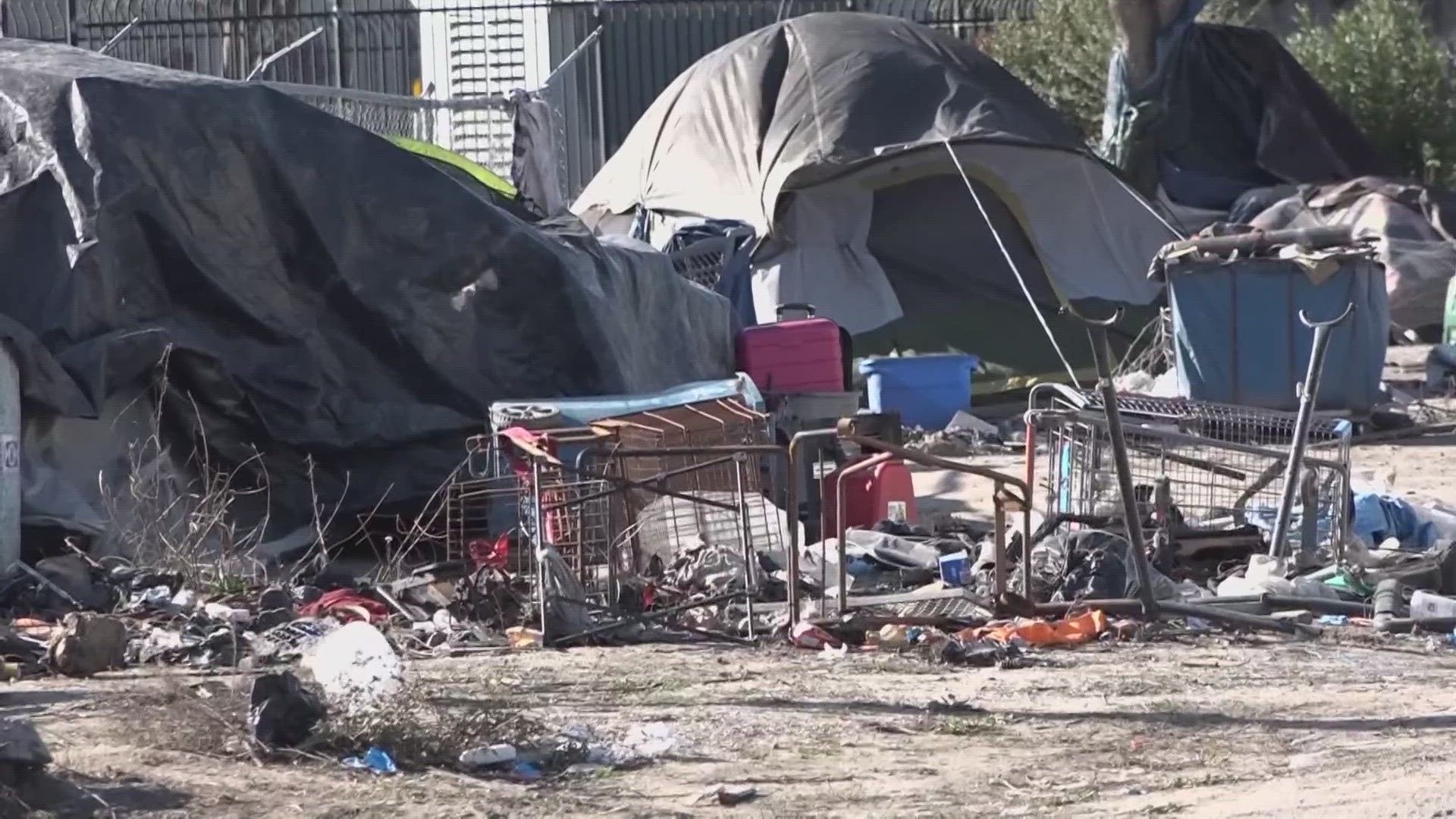SACRAMENTO COUNTY, Calif. — Sacramento County Sheriff Jim Cooper is demanding more be done to deal with the homelessness issue across the county.
A recent five-day operation done by his department shows they contacted 198 people on the street and offered them services, but Sheriff Cooper says only one person accepted the resources.
“No one should live like that,” said Sheriff Cooper. “In the last four years, we (across the state) have spent $17.5 billion on homelessness, it has gotten worse. So, why is it not working?”
Cooper says the recently approved CARE Court is a good step, which lets a loved one petition treatment for homeless people with severe mental illness.
“CARE Court's a start, but I think for the most severely mentally ill, conservatorship,” said Cooper. “Hopefully, they get OK. They can lead a normal life. Maybe they never get OK, but the other option is to what? To leave them languishing.”
Cooper said too much light is being put on housing the homeless, but not enough for mental illness and substance abuse and violence towards homeless women.
“What really concerns me and bothers me is the advocates that are out there beating the drum day in and day out for housing,” said Cooper
“I agreed with him (Sheriff Cooper) that, the county Board of Supervisors have to be a lot more proactive about funding substance abuse, treatment beds and mental health treatment beds,” said Bob Erlenbusch, executive director with the Sacramento Regional Coalition to End Homelessness.
Erlenbusch says violence towards homeless women is a significant issue people should not overlook. But he disagrees with one major point.
Erlenbusch points to recent UC San Francisco study that said the heart of the crisis is due to the shortage of housing.
“For him to say housing isn't an issue, didn't make any sense,” said Erlenbush.
Both men agree, state and local lawmakers need to do more than just throw money at the problem.
“If I skinned my knee, I can go to med clinic and get fixed,” said Sheriff Cooper. “We have a mental health crisis, where do I go in California? Nowhere to go, you are screwed.”
Cooper adds two-thirds of his jail population has some kind of mental illness.
Erlenbusch says building trust and a relationship with a homeless individual, that is the best way to direct them to services.
WATCH ALSO:



















